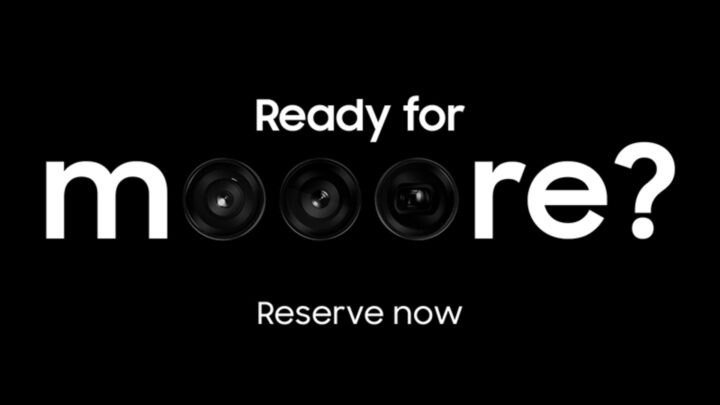The Galaxy S23 Ultra is just one week away from its official unveiling. All the leaked information so far has painted a positive picture. Samsung upgraded almost every aspect of its upcoming flagship for 2023, and the Galaxy S23 Ultra is an interesting proposition for Samsung flagship customers, especially those living in markets where trade-in values are stellar.
We’ve already listed plenty of reasons why the Galaxy S23 Ultra might be a worthwhile upgrade for Galaxy S20 Ultra customers. But what about Galaxy S21 Ultra users? Should they consider the Galaxy S23 Ultra as their next flagship phone? Let’s answer this by looking at all the improvements the 2023 flagship brings over the 2021 model, and the things you might lose by switching to the newer phone.
Better, brighter display with 1-120Hz refresh rate
Both the Galaxy S21 Ultra and the Galaxy S23 Ultra have 6.8-inch Dynamic AMOLED 2X displays with similar resolutions. However, the 2023 model increases peak brightness from 1,500 nits to 1,750 nits, and reports indicate that Samsung has fine-tuned color accuracy to a superior level, especially for low-light usage conditions.
In addition, the Galaxy S23 Ultra supports a refresh rate of anywhere between 1Hz and 120Hz, whereas the Galaxy S21 Ultra’s panel can only go as low as 48Hz. This means that the Galaxy S23 Ultra panel is friendlier to battery life, which may compensate for the higher brightness.
All in all, the Galaxy S23 Ultra display is brighter and technologically superior.
The Galaxy S23 Ultra fully embraces the S Pen
Although the Galaxy S21 Ultra was the first S-series flagship to adopt S Pen support, the phone doesn’t have a built-in holster for this iconic input device. You could say that the 2021 model is the last pure Galaxy S Ultra flagship, and you could view that as a plus.
Nevertheless, if you have any interest in the S Pen, the Galaxy S23 Ultra is a worthy upgrade over the Galaxy S21 Ultra on the S Pen holster alone. The 2023 model fully embeds the S Pen and offers better stylus technology with lower latency. You no longer have to buy an S Pen case for your device, and the accessory will always be within reach.
Better build quality and a newer design
Beauty is in the eye of the beholder. But even if you prefer the bulky camera housing of the Galaxy S21 Ultra, there’s something to be said about the design consistency of the Galaxy S23 Ultra.
The 2023 flagship has a squarer footprint and a much more minimalist camera setup without a traditional “hump.” It looks more up-to-date than the 2021 model, and the thicker metal frame makes the phone look sturdier.
Aside from its updated aesthetics, the Galaxy S23 Ultra also employs better building materials, such as a stronger aluminum frame with improved scratch and drop resistance, along with Gorilla Glass Victus 2 instead of Glass Victus display protection. The former should provide better protection against drops on hard surfaces such as concrete pavements. In essence, the Galaxy S23 Ultra is more suitable to use without a protective case than the Galaxy S21 Ultra.
Snapdragon SoC everywhere and more (possibly faster) base storage
For the first time, Samsung will no longer split the flagship market between Exynos and Qualcomm chipsets. The Galaxy S23 Ultra ships with a 4nm Snapdragon 8 Gen 2 worldwide, which means that support should be better, and you’ll get to experience Qualcomm’s best SoC yet, even if you buy the Galaxy S23 Ultra in a so-called “Exynos market.”
And needless to say, the Snapdragon 8 Gen 2 is a more powerful solution than the Snapdragon 888 or the Exynos 2100 SoCs. Furthermore, the Galaxy S23 Ultra reportedly uses an exclusive version of the Snapdragon 8 Gen 2, which boasts higher frequencies for better performance.
In addition, the Galaxy S23 Ultra offers more storage as standard. The base model has 256GB of storage, while the Galaxy S21 Ultra has 128GB or higher. On the flip side, you get 8GB of RAM with the Galaxy S23 Ultra rather than 12GB of RAM for the base model, but you can confortably compensate using RAM Plus since the phone offers more storage.
Finally, if rumors are true, the Galaxy S23 Ultra ships with faster UFS 4.0 storage instead of UFS 3.1, which should make file transfers faster and help performance for RAM Plus virtual memory.
Better cameras with a 200MP primary sensor
The Galaxy S23 Ultra is Samsung’s first smartphone to boast a 200MP primary camera. The new ISOCELL HP2 offers many improvements, especially in terms of low-light performance and autofocus.
The telephoto cameras are also better, even though they provide the same zoom capabilities. AI processing was improved, and zoomed-in shots should look much better on the Galaxy S23 Ultra.
One possible downgrade could be the 12MP selfie sensor, down from the S21 Ultra’s 40MP unit. However, the 12MP sensor appears to be brand-new, which could mean that it takes advantage of newer technologies to create better selfies with more accurate colors.
If you’re looking for a camera upgrade from the Galaxy S21 Ultra, the S23 Ultra certainly qualifies as one.
Faster battery charging (wired)
One of the most unusual choices Samsung made for the Galaxy S21 Ultra was to downgrade charging speeds to 25W. Thankfully, the Galaxy S23 Ultra has better specifications. Even though both phones have 5,000mAh batteries, the Galaxy S23 Ultra offers 45W super-fast charging.
However, Samsung also made an unusual choice for the Galaxy S23 Ultra. Although the 2023 model boasts faster wired charging than the 2021 flagship, it seems to have 10W wireless charging instead of the Galaxy S21 Ultra’s 15W wireless capabilities.
So, you win some, lose some. But if you’re looking for faster wired charging, the Galaxy S23 Ultra is the way to go.
Newer software and support until Android 17
Although the Galaxy S21 Ultra got upgraded to Android 13 and One UI 5.0 recently, Samsung will ship the Galaxy S23 Ultra with the newer One UI 5.1 firmware.
The Galaxy S21 Ultra may eventually get One UI 5.1, but the 2023 model will have a head-start. More importantly, even though both phones qualify for Samsung’s improved four-year Android OS upgrade policy, support for the 2021 model will stop at Android 15. On the other hand, the Galaxy S23 Ultra will receive Android 17 closer to the end of this decade.
Reasons not to upgrade from the Galaxy S21 Ultra
The Galaxy S23 Ultra undoubtedly offers many upgrades over the Galaxy S21 Ultra, but what’s the downside? Are there any reasons you should consider not upgrading to the 2023 model aside from the money you’d have to spend?
Well, as mentioned before, you might lose 5W of wireless charging speed, down to 10W, if you switch to the Galaxy S23 Ultra. If you care about wireless charging, this may be an issue.
You also lose 4GB of RAM for the base model, albeit you get more (and possibly faster) storage. Nevertheless, if you value more apps running in the background and don’t want to use RAM Plus, you might get a lesser experience on the Galaxy S23 Ultra.
On the software side, it is true that the Galaxy S23 Ultra will get support for longer, but the Galaxy S21 Ultra is no slouch. It still has two major OS upgrades planned for the future, so it’s not like you’ll miss out on the next few One UI versions if you decide to keep using the Galaxy S21 Ultra for a couple more years.
And lastly, a relatively smaller user base might want to know that the Galaxy S23 Ultra doesn’t have an FM radio. This feature was already market-dependent and available only for the Snapdragon-powered Galaxy S21 Ultra (no FM for Exynos). But now, the Galaxy S23 Ultra is likely to ditch FM radio support everywhere.
If you consider the Galaxy S23 Ultra a worthy upgrade, keep an eye out for Unpacked 2023. The event will take place on February 1, and the new flagship should be available for pre-order for roughly two weeks before shipping to early buyers. Until February 1, you can reserve the phone online and earn $50 in Samsung Credit.

SamsungGalaxy S23 Ultra

SamsungGalaxy S21 Ultra
The post Galaxy S21 Ultra to Galaxy S23 Ultra: Reasons to upgrade, a few not to appeared first on SamMobile.
Source: Sammobile





